The Kashmiri copperware or locally known as “Traam” in Kashmiri is an ancient artwork. The floral, stylized, geometric, leaf and even calligraphic motifs that are engraved or embossed on copper or brass. Mostly cooking pots, samovars and other sundry articles are crafted upon. These articles are then electroplated, locally called “Kalai”. The copperware objects in Kashmir are used for dailyware household items as well as for decorative purpose.
The art of casting copperware & brassware (Sartal) in Kashmir had flourished from years. The Kashmiri brassware is noted all over the world for good quality and design. The brassware objects in Kashmir ranged from household, decorative and ceremonial items. They comprise mostly cooking pots and sundry articles for the household. However, the most celebrated item is Samovars (tea-kettle of Russian origin).
The Kashmiri craftsman also produces excellent products of copper-ware consisting mostly of cooking pots and samovars and sundry articles for the household or the mantelpieces ,they are admiringly adapted for electroplating. There is a good demand for beautiful copper trays inlet into tables of carved walnut-wood, There are floral, stylized, geometric, leaf and even calligraphic motifs that are engraved or embossed on copper or brass.

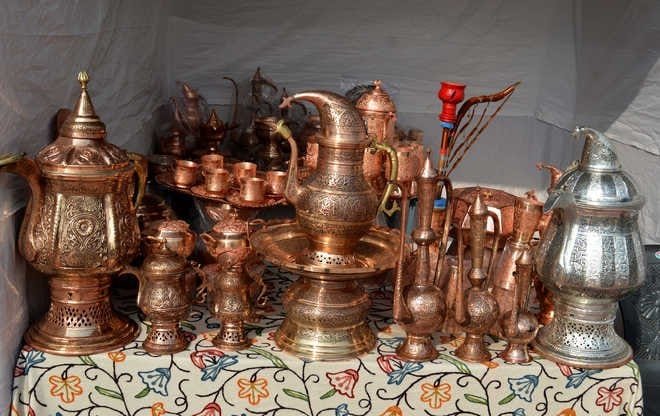
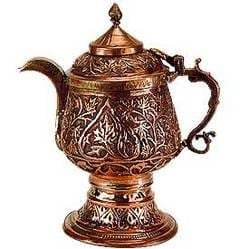
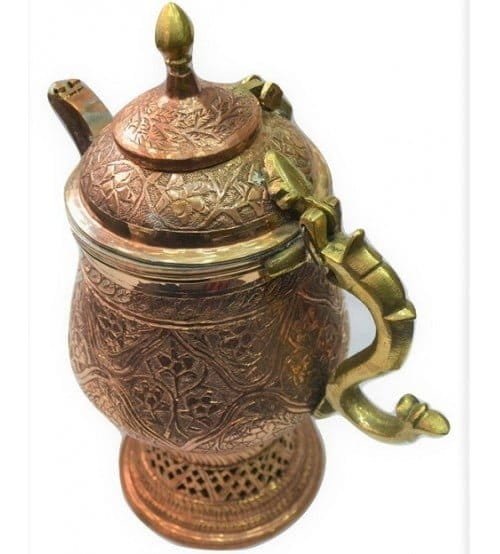
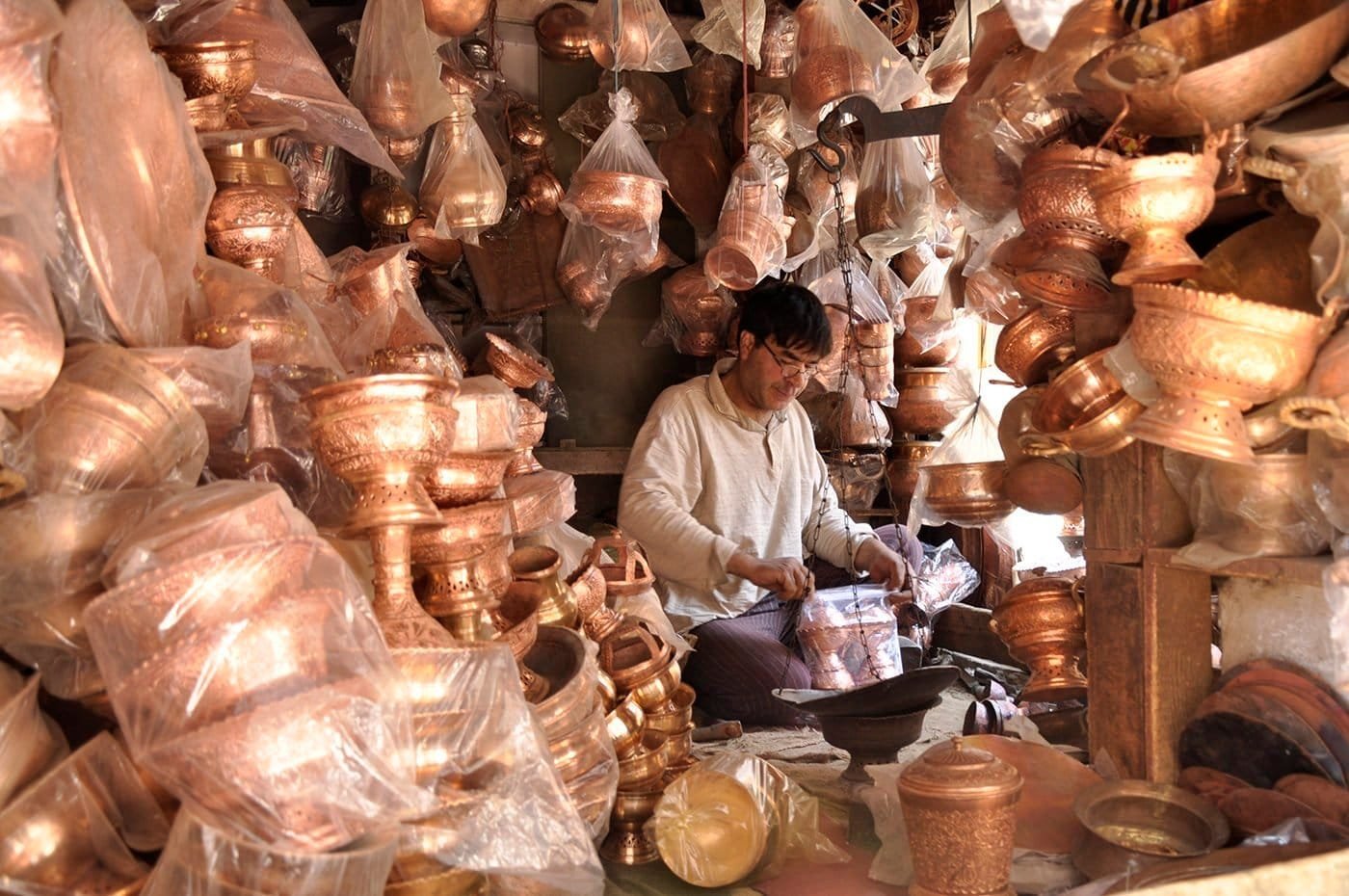
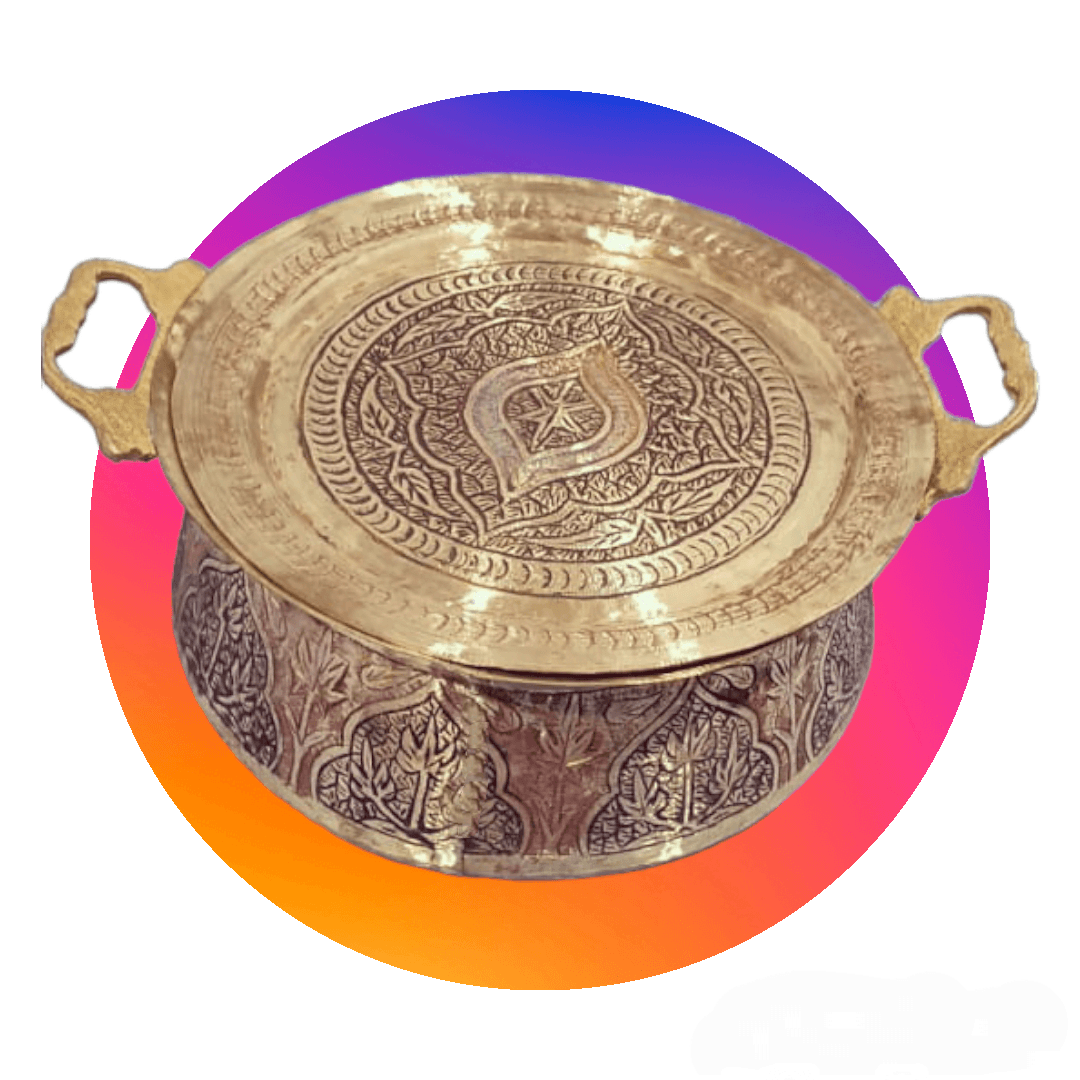
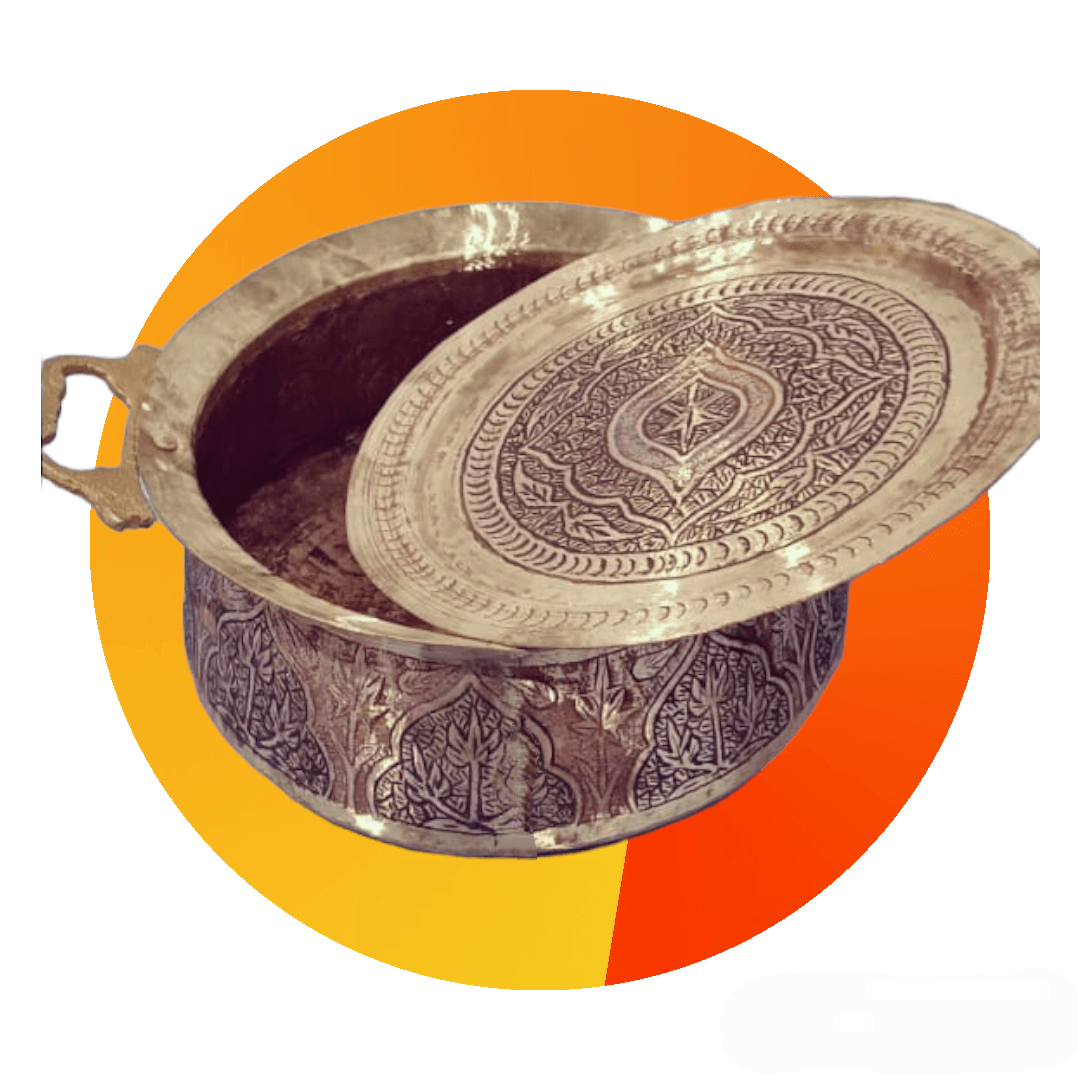

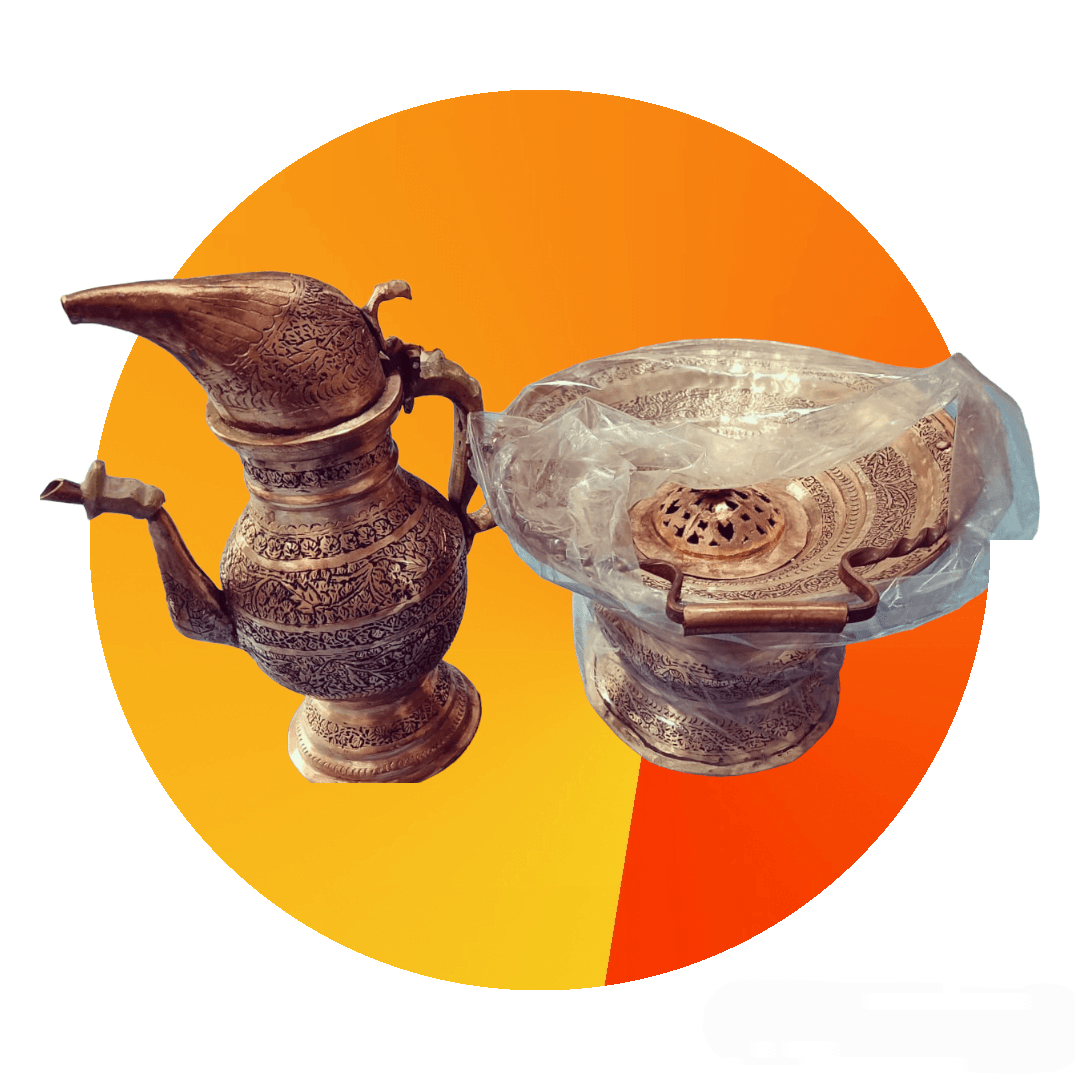
Reviews
There are no reviews yet.